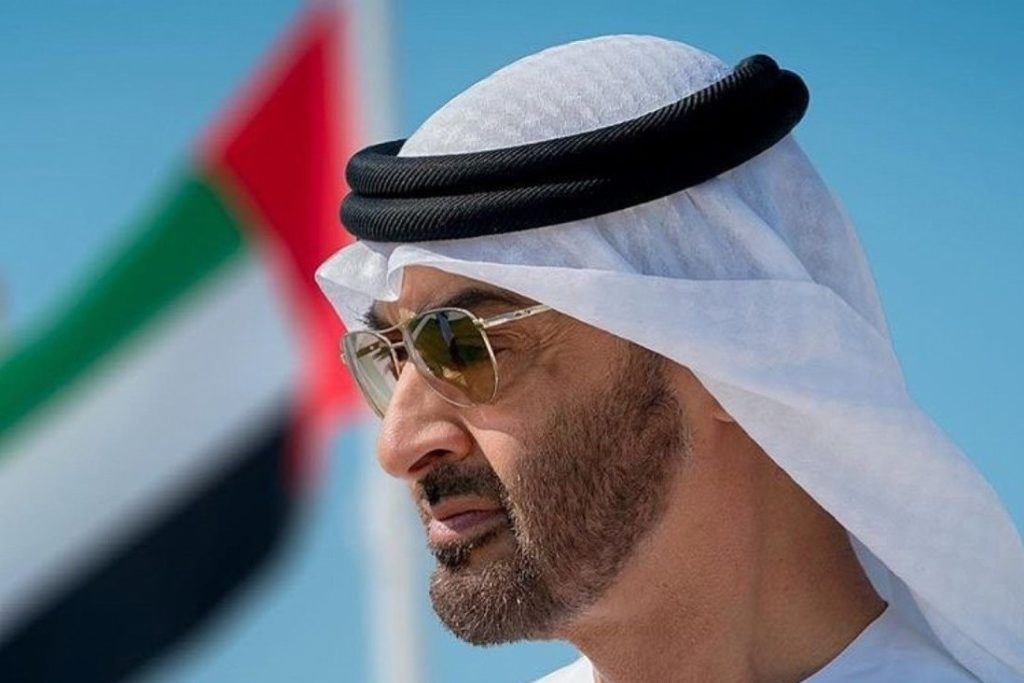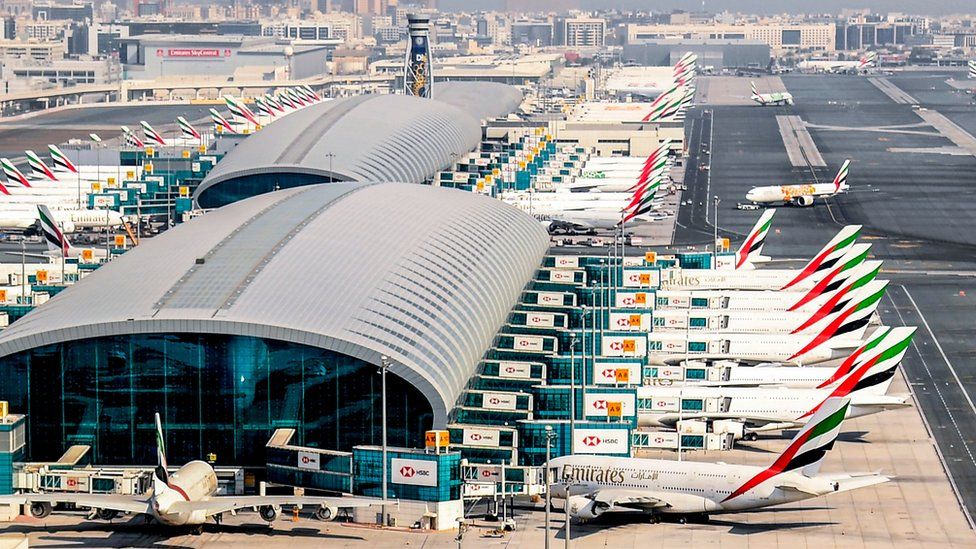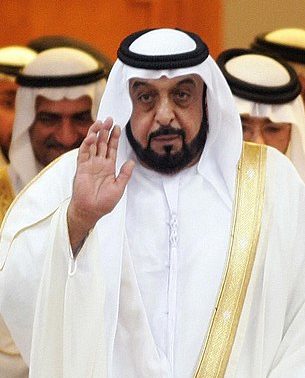The United Arab Emirates (UAE) being the 2nd largest economy of the Gulf Cooperation Council (GCC) and Middle East and North Africa (MENA) has now become the role model for others in the fight against COVID-19. The government of UAE has announced economic package of approximately AED 26.5 billion ($7.2 billion or 2 percent of GDP) for various sectors.
UAE’s Visionary Leadership
The UAE’s visionary leadership is taking all possible measures to boost the morale of the business community in the UAE. Its latest decision to step up precautionary measures to contain the impact of the COVID 19 pandemic is aimed to protecting people’s health and safety and ensuring business continuity at all sectors. The country’s leadership is positively responding to the challenges with dignity and resilience.
UAE’s Economic Package (2020)
The UAE economic package included AED 16 ($4.4 billion) approved by the federal government to support the private sector by decreasing numerous government charges and speeding-up existing mega infrastructure projects: AED 1.5 billion ($0.4 billion by the government of Dubai to reduce government fees, provide additional water and electricity subsidies, and simplify business procedures and AED 9 billion ($2.5 billion) announced by the government of Abu Dhabi as part of the ongoing “Ghadan-21” fiscal stimulus program. The new economic initiatives provided for water and electricity subsidies as well as credit guarantees and liquidity support to small and medium-sized enterprises. Moreover, the government of Abu Dhabi has announced a reduction or suspension of various government fees and penalties, as well as a rebate on commercial lease payments in the tourism and hospitality sectors.
UAE’s Containment Policies
The UAE government has announced and implemented several interconnected and interdependent measures to limit the spread of the COVID-19 virus, including closure of schools, nurseries, shopping malls, parks, restaurants and various tourist attractions. National Epidemic Control Plan was also announced and effective travel restrictions suspension of international flights, suspension of prayers at mosques and other large gatherings, and enacted tele-working arrangements in government offices.
Preventive Measures
UAE has established a number of preventative measures, such as localized quarantines and airport screenings. Hand sanitizers are now in all hotels and government agencies are advised to interact online instead of through face-to-face meetings, and a pilot program has already been started in government schools to teach via distance learning. The Emirates have also acted beyond their borders recently, airlifting a group of Yemeni students from Wuhan in China, the virus’s epicenter.
Moreover, it has increased testing and scaled up disinfection efforts, established a dedicated task force to ensure uninterrupted supply of consumer goods and prevent manipulative pricing practices, and launched remote learning initiative to ensure continuity of education.
Monetary Measures
The UAE leadership continues to take numerous integrated supportive measures that would provide banking and financial liquidity for national business sustainability and growth opportunities during the ongoing infectious COVID-19.
The Central Bank of the UAE (CBUAE)
The Central Bank of the UAE (CBUAE) has doubled the size of its stimulus package to Dh256 billion ($70 billion or 20% of GDP) package which included various diversified but integrated measures and allowed banks and finance companies in the country to extend deferrals of principal and interest payments to their customers until December 31, 2020.

CBUAE lowered its policy interest rate twice by a combined 125 basis points so far this year. On March 15, it had announced a Dh100 billion stimulus package which allowed banks to grant temporary relief on retail and business clients’ for loans payment of up to six months.
Lowering of Reserve Requirements
It reduced banks’ required reserve requirements from 14% to 7% which increased liquidity in banking sector and mitigated the impact of COVID-19. It will release an additional Dh61 billion liquidity for the banking sector, zero interest rate collateralized loans to banks (AED 50 billion), allowing the use of banks’ excess capital buffers (AED 50 billion), 15-25 percent reduction in provisioning for SME loans, increase of loan to value ratio for first-time home buyers by 5 percentage points, limiting bank fees for SMEs, waiver of all payment service fees charged by CBUAE for six months, raising the limit on banks’ exposure to the real estate sector from to 30% of risk-weighted assets, subject to adequate provisioning and allowing banks to defer loan repayments till December 31, 2020
Being prominent regional expert of UAE & GCC I personally think that the additional policy measures of the CBUAE will successfully mitigate the bad effects of COVID-19 and effectively relieve the pressure on banks and financial institutions, allowing the banking industry and financial institutions to continue to carry out their vital contributory role that is crucial role to the development of UAE national economy.
I also think that it has also offered the required relief and continued access to funding for businesses and households. The diversified but integrated short and medium terms policy initiatives of the CBUAE are development oriented, pro-business & investment, forward-looking, dynamic and diverse.
I expect the domestic banking industry of UAE and its finance companies will take advantage from these fiscal and monetary policies for the benefit of their customers and the UAE economy. Moreover, increasing liquidity in the banking sector will provide further economic and financial stability during ongoing human saga of COVID-19 and facilitate banks to offer additional lending and support to critical sectors of the macro economy. It will help the UAE government to maintain economic stability and sustainability in the country.
UAE’s Humanitarian Assistance to Pakistan
UAE has been helping the government of Pakistan in its fight against coronavirus (COVID-19) pandemic as the second batch of eleven tonnes of medical and supplies was handed over to Pakistan authorities. The UAE is the second country after China that has been providing assistance to Pakistan continuously and remains in constant contact with the government.
The United Arab Emirates (UAE) Ambassador for Pakistan Hamad Obaid Ibrahim Salem Al-Zaabi said that UAE is the champion and role model of humanitarian assistance in the world. It is one the main pillars of its foreign policy too, he added. He said that the UAE leadership including President Khalifa bin Zayed bin Sultan Al-Nahyan and Crown Prince of the Emirate of Abu Dhabi and Deputy Supreme Commander of the UAE Armed Forces Sheikh Muhammad bin Zayed Al Nahyan are taking a personal interest in the well-being of the people of Pakistan.
The ambassador said that more aid is in the pipeline and his government is watching the situation prevailing in Pakistan and whenever this country will need, the UAE government would provide support. The UAE ambassador stated that the arrival of the second batch of medical aid for Pakistan confirms the commitment of UAE and its leadership to stand by the people of Pakistan in these exceptional circumstances going through the world.
He said that the second phase of medical assistance to Pakistan is a pioneering model and a realistic evidence of the success of humanitarian efforts of the UAE leadership in their quest to provide support and assistance to the friendly people of Pakistani, which is an established approach in foreign policy since the era of founding father late Sheikh Zayed bin Sultan Al Nahyan (May Allah bless his soul) and continued and developed in the era of H.H Sheikh Khalifa bin Zayed Al Nahyan, the President of UAE.
He reminded that bilateral relations between Pakistan and the UAE are based on mutual affinity and respect, and these ties has flourished to partnerships in many fields, stressing that friendship and close linkages between the two countries is a key element of this partnership.
The UAE opened numerous testing centers throughout the countries to track and trace infections efficiently, as knowing where infections originated helps authorities prevent further transmissions of the virus. It has already proved effective in flattening the infection curve in the UAE.
Mix of Strict Measures
UAE residents who leave their homes for unnecessary reasons will be fined 2,000 dirhams ($545) and those who go out during the national sterilization program (8 p.m.-6 a.m) will be fined 3,000 dirhams ($817). Only those performing vital jobs or buying essential necessities are allowed to leave their homes.

Abu Dhabi Crown Prince Mohammed bin Zayed has again announced economic relief package in addition to medical and health procedures early on. Abu Dhabi’s Executive Council announced 16 new initiatives designed to support businesses and the community. It included providing credit guarantees for SMEs, exemptions on commercial vehicle registration fees, subsidies for electricity for startups, fast-tracking government invoices to get businesses paid more quickly, land leasing reductions, penalties waived, rental rebates for hospitality, tourism, and entertainment sectors and beneficial lending options, among others.
Salient Features of UAE Response to COVID-19
It is obvious that the backbone of the UAE’s response to the Covid-19 pandemic is derived from its comprehensive public health-care system which includes testing (UAE Ministry of Health and Prevention claims 2nd position in the world for the number of COVID-19 tests conducted so far. The ministry has said it has carried out more than 220,000 laboratory tests across the UAE, this number is equivalent to 22,900 tests per a million people and is the second highest in the world), hospital treatment and recovery programs are covered by Sheikh Mohammed bin Zayed’s health care program. A manageable health care and economic situation has allowed the UAE to go a step further and provide humanitarian missions to areas outside its own borders, something that the world’s most powerful nations have been unable to perform.
The Dubai Health Authority has provided residents with an application that allows them to communicate for free with healthcare professionals. The UAE also enlisted a “virtual doctor” to help diagnose potential cases of the novel COVID-19. Dubbed the COVID-19 Virtual Doctor, the project was launched by the country’s Ministry of Health and Prevention.
National Sterilization Drive
The UAE has started to sterilize all its public utilities, public transport, and metro services over the weekend. Dubbed the National Sterilization Program, the nationwide measure was recently extended until April 5.
Disinfection Drive
During the course of the disinfection drive, people had to stay home from 8 pm to 6 am every day till the aforementioned date. For those who violated rules, fines were imposed.
Dubai’s Supreme Committee of Crisis and Disaster Management
Dubai’s Supreme Committee of Crisis and Disaster Management launched a website through which residents can request permission to leave home during the sterilization program. The UAE has taken a proactive approach, implementing preventative measures to ensure that business remains prosperous. Because of these measures, the COVID-19 has not affected businesses in Dubai.
UAE’s Telecommunications Regulatory Authority (TRA)
The UAE’s Telecommunications Regulatory Authority (TRA) revealed that it will be unblocking some video and voice calling applications during the quarantine period. The decision was taken after residents called on authorities to ease the restrictions regularly placed on Voice over Internet Protocol (VoIP) apps such as WhatsApp, Skype, and FaceTime to better communicate with their overseas families. The TRA eventually approved the usage of Microsoft Teams, Zoom, and Blackboard on all internet networks within the country, as well as Microsoft’s Skype for Business and Google Hangouts on mobile and fixed-line internet networks.
More recently, the UAE further relaxed its restrictions on internet telephony apps such as Cisco Webex, Avaya Spaces, Slack, and BlueJeans.
The World Health Organization (WHO) and the UN has already appreciated national policies and responses of the UAE against COVID-19 which is indeed the best in the GCC, and MENA.
UAE’s Innovative & Technological Preparedness
UAE is the icon and pioneer leader of artificial intelligence technologies in the GCC and MENA. Its technology sector is proving useful as various UAE companies and especially, Emirati Company Group 42 (G42) has been tackling the COVID-19 outbreak head on. It announced the launch of its “Population Genome Program”, which will provide rapid genotyping to help gather necessary data for researchers to develop a cure for the infectious virus.
It will also be supplying hundreds of thousands of essential medical supplies to China, which includes surgical masks, goggles, gloves, and a variety of other protective clothing to protect the healthcare workers that are treating sick individuals.
Moreover, the UAE has also announced the use of the “Wareed system” at health facilities in Dubai and the Northern Emirates. It is designed to help doctors and health care workers detect potential cases of coronavirus during medical appointments. By using this system, Emirati doctors are able to document their patients’ details, including their symptoms and their travel history, which will be processed by an algorithm to decide whether or not the patient may be at risk. The development of these types of innovative technologies comes at a crucial time as the international community grapples with a potential global catastrophe.

Aviation Industry
The UAE’s largest airlines, Etihad Airways and Emirates remain unaffected with no serious warnings issued in response to the outbreak. UAE has been quick to deploy its preventative measures, like thermal screening while ensuring vital commercial channels with China remain open (Emirates still operates its Dubai-Beijing route).
Legislative Support to Private Sector
Authorities in the United Arab Emirates have published new guidance and legislation to support private sector employers against the unprecedented backdrop of the COVID-19 pandemic. Many private sector employers have been applying more flexible working arrangements for their staff wherever possible in recent weeks to support employees and ensure business continuity during the crisis. Two recent resolutions introduced by the Ministry of Human Resources and Emiratisation (MOHRE) will give these businesses added guidance and confidence in terms of the measures that they can implement across their UAE workforces.
The two resolutions, which cover redundancy, restructuring and remote working come at a time when guidance and clarity is more important than ever. Many companies are currently reviewing their workforce requirements and these interim changes introduced by the MOHRE should help to facilitate decision making processes.
Ministerial Resolution 279 of 2020, effective 26 March 2020, allows private sector businesses affected by the precautionary measures taken to prevent the spread of COVID-19 to restructure the contractual relationship with their employees.
Strong political commitment, immaculate governance and delivery system, optimal utilization of Artificial Intelligence Technologies (AITs), economic bailout package, adequate financial measures and last but not least, immense social security programs proved effective in UAE’s fight against Covid-19.
It is one of a few countries that have taken systematic and result oriented actions to combat the economic fallout this pandemic will certainly create. The country’s support for small and medium sized enterprises (SMEs) should prompt the rest of the world to navigate these trying circumstances properly.




